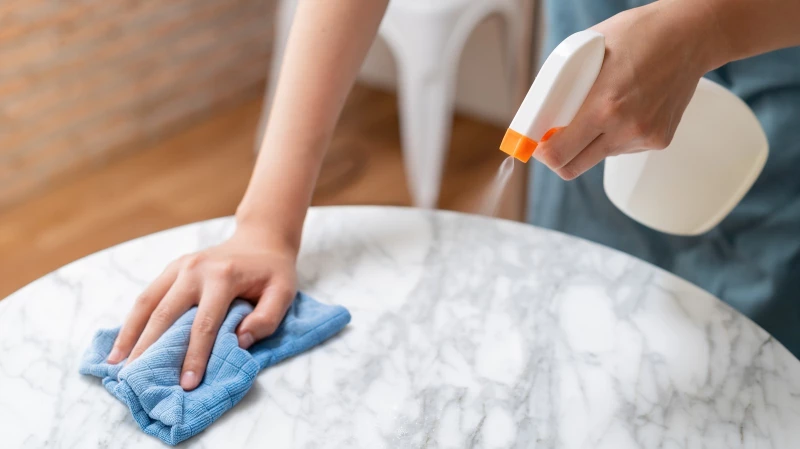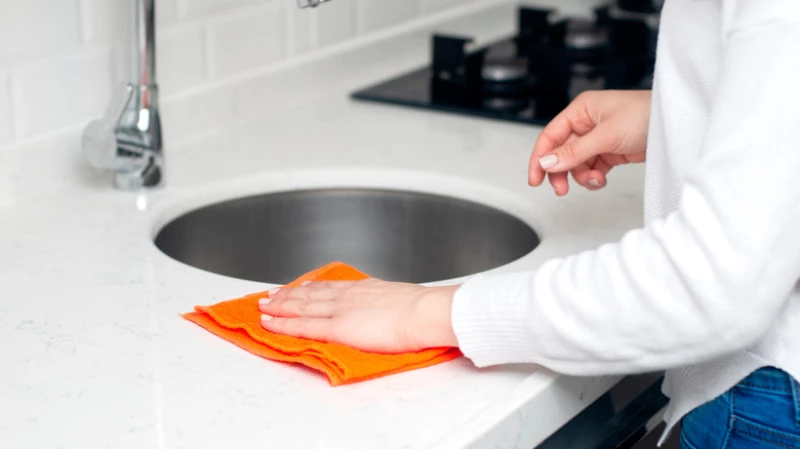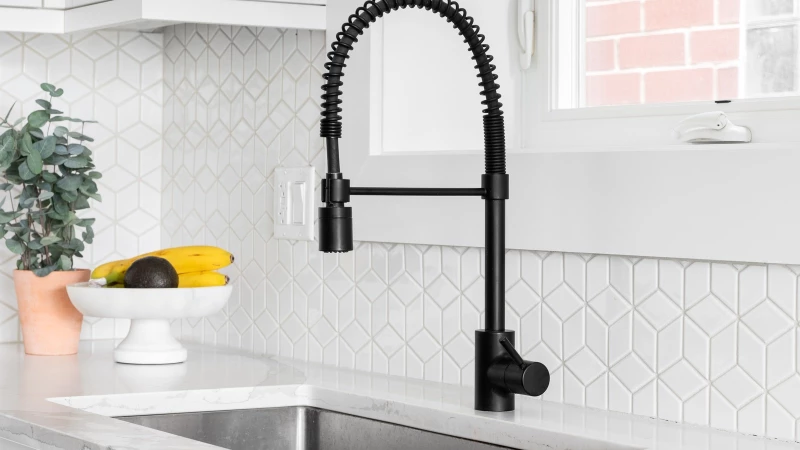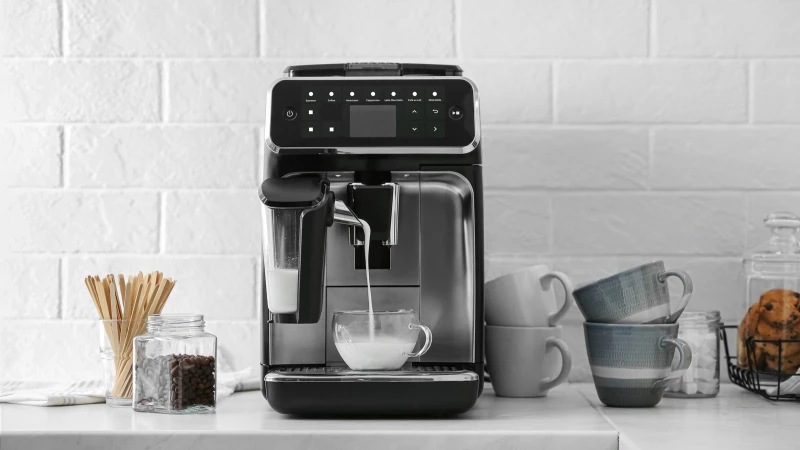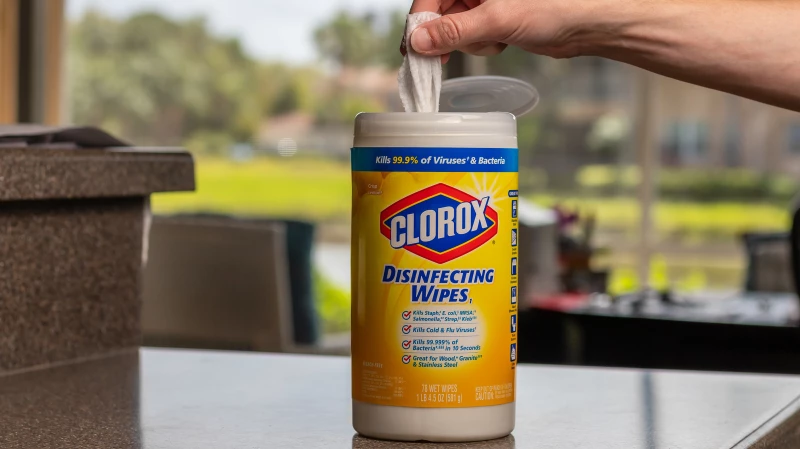Marble countertops are a luxurious and stylish choice for your kitchen or bathroom. Experts suggest that having marble countertops can increase the value of your home. However, it's important to note that marble is porous and can be easily damaged by acidic or abrasive cleaners. Many common household cleaners, such as those containing vinegar or lemon, can cause etching and discoloration on marble surfaces over time. To prevent damage, it's essential to use the right cleaning products. Rubbing alcohol is a safe and effective option for cleaning marble countertops, helping to maintain their beauty and longevity.
How to clean marble countertops with rubbing alcohol
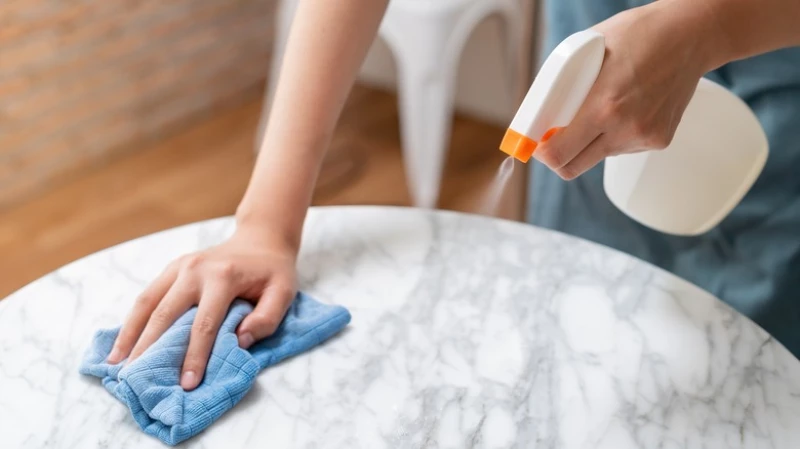
If you've installed marble countertops in your home and are in need of an easy and simple homemade cleaner, then start with a bottle of isopropyl alcohol. You'll also need a spray bottle, water, dish soap, and to personalize it a few drops of your favorite essential oil. Tea tree, lavender, or eucalyptus will leave your kitchen and bathroom smelling clean and fresh. To get started, add two cups of water to the spray bottle and mix in ¼ cup of rubbing alcohol. To that mixture, add a few drops of dish soap and 5-10 drops of your chosen essential oil. Secure the top on the spray bottle and give it a vigorous shake to incorporate all of the ingredients.
Cautions for this method
Switching to rubbing alcohol is a clever way to clean your marble countertops without having to resort to harmful commercial chemicals. That being said, there are a few cautions to consider before proceeding with this method. The first recommendation to keep in mind is that it's important to dilute rubbing alcohol in water before using it on your marble countertops. While this method is considered safe for marble, undiluted rubbing alcohol may be too strong for the delicate marble stone, causing etching or discoloration. On that same note, avoid pairing isopropyl alcohol with abrasive cleaning tools like scrubbers or scouring pads as these will likely leave visible marks on the marble. Instead, opt for a soft microfiber cloth or a gentle sponge to avoid damaging your counters.
To keep your marble countertops clean and well-maintained, it's important to follow a few key tips. Always start by spot-testing any cleaner in a hidden area before using it on the entire surface. While marble is generally safe to clean, different types of stone may react differently to cleaning agents. If you notice any negative effects like etching or discoloration, stop immediately and consult your marble supplier for advice on a safer cleaning method. Additionally, avoid mixing different cleaners together, as this can create a hazardous substance that is harmful if inhaled or touched. Stick to one cleaner to ensure the safety of both yourself and your countertops.

